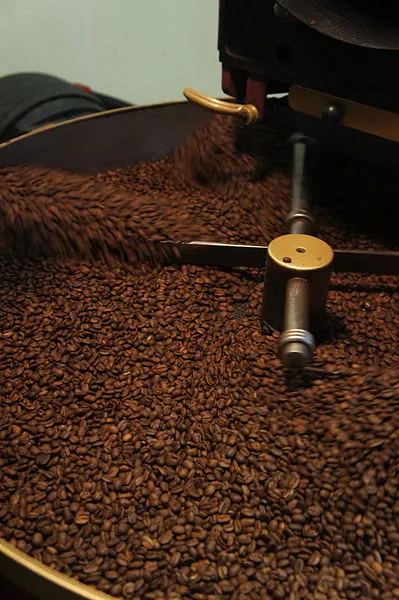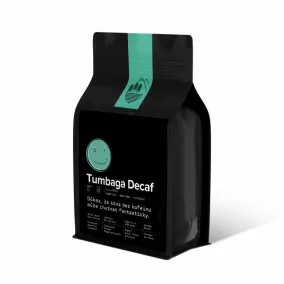
What about coffee consumption during pregnancy and breastfeeding? Can you indulge in a cup of your favourite beverage in peace or would you do better to refrain from coffee for a while?
You will have come across opinions that drinking coffee during pregnancy is too risky, as well as the somewhat more favourable view that one cup of coffee a day does no harm. But since every expectant mother wants the best for her offspring, we took a closer look at the opinions of renowned experts.
It's important to remember that coffee itself may not be risky, it's basically the intake of caffeine, which has proven stimulant effects, raising blood pressure and speeding up heart rate. It crosses the placenta, so the dose needs to be monitored, as the unborn baby does not have the enzymes needed to metabolise caffeine. And just as caffeine will keep you awake, it will naturally affect the baby.
Based on a number of studies conducted, we know that you don't have to give up caffeinated coffee altogether, but it is advisable to limit your caffeine intake in pregnancy to a dose equivalent to 150-200 mg per day. Which in practice means that you can theoretically have two cups of drip coffee per day. Every expectant mother should consult her gynaecologist about her caffeine intake, taking into account her current state of health and general medical history.
Nowadays, it is good to remember that the source of caffeine is not only coffee, but also black tea and green tea, cocoa, cola drinks or chocolate.
Caffeine vs. pregnancy
What not to believe
Don't be intimidated by the idea that caffeine consumption in pregnancy causes birth defects. We don't have any studies that come to a similar conclusion.
What's Good to Know
- The body of a pregnant woman usually processes caffeine more slowly.
- Higher doses of caffeine may be associated with an increased risk of miscarriage, according to some studies.
- According to some studies, babies of mothers who consume coffee or other caffeinated beverages and products during pregnancy have lower birth weights. (To give you an idea, the average difference in birth weight was 66 grams and the measured length of the baby was 0.32 cm.)
- Because the last trimester is itself usually accompanied by insomnia, it is a good idea to consider whether to exacerbate your problems by consuming caffeinated coffee during this period. This, of course, begs the question...
Is drinking decaffeinated coffee the solution?
Considering that 97% of the caffeine is removed from decaffeinated coffee, it is definitely a better choice during pregnancy and breastfeeding.
Caffeine vs. Breastfeeding
We know that small amounts of caffeine consumed pass into breast milk. That's why it makes sense to limit caffeine intake during breastfeeding. If a breastfeeding mother has two or three espressos a day, the risk of her baby having trouble sleeping is quite high. So even after giving birth, it's wise not to overdo it with caffeine.
Decaffeinated coffee Colombia 100% Arabica is 97% caffeine-free but still 100% tasty! Suitable for individuals with health issues or pregnant women.
Decaffeinated coffee Colombia 100% Arabica is 97% caffeine-free but still 100% tasty! Suitable for individuals with health issues or pregnant women.
Taste the delicious decaffeinated coffee from the Czech roastery Nordbeans. Flavour: VANILLA - CREAM - CITRUS
Taste the delicious decaffeinated coffee from the Czech roastery Nordbeans.
Flavour: VANILLA - CREAM - CITRUS
Decaffeinated coffee from Brazil with a sweet and delicate taste, processed using the Water Decaf method.
Decaffeinated coffee from Brazil with a sweet and delicate taste, processed using the Water Decaf method.
The fragrant pleasure of fresh coffee. A different freshly roasted coffee every month! Order your coffee for 3 / 6 / 12 months in advance with a discount of up to 25%.
The fragrant pleasure of fresh coffee. A different freshly roasted coffee every month! Order your coffee for 3 / 6 / 12 months in advance with a discount of up to 25%.
Brazil is the world leader in the production and export of extremely high-quality coffee beans . The best known and most popular is the 100% Arabica Brazil Santos.
Brazil is the world leader in the production and export of extremely high-quality coffee beans . The best known and most popular is the 100% Arabica Brazil Santos.
Decaffeinated coffee Colombia, whole bean...
Nordbeans Colombia Tubaga DECAF 250g
Coffee Le Piantagioni del Caffe DECAF, 250 g
Coffee subscription from GourmetKava
Brazil Santos, arabica coffee beans
Sources:
https://pubmed.ncbi.nlm.nih.gov/31818639/





























































































